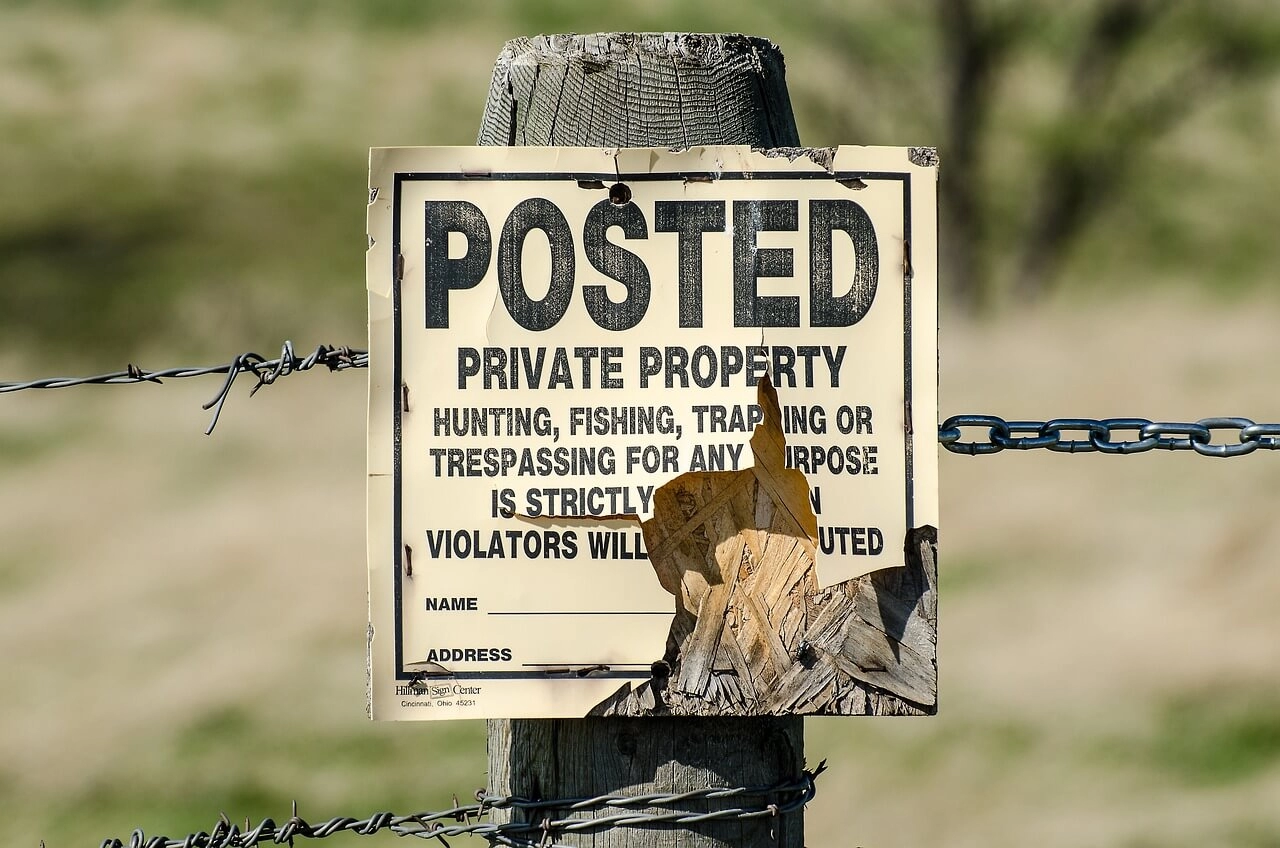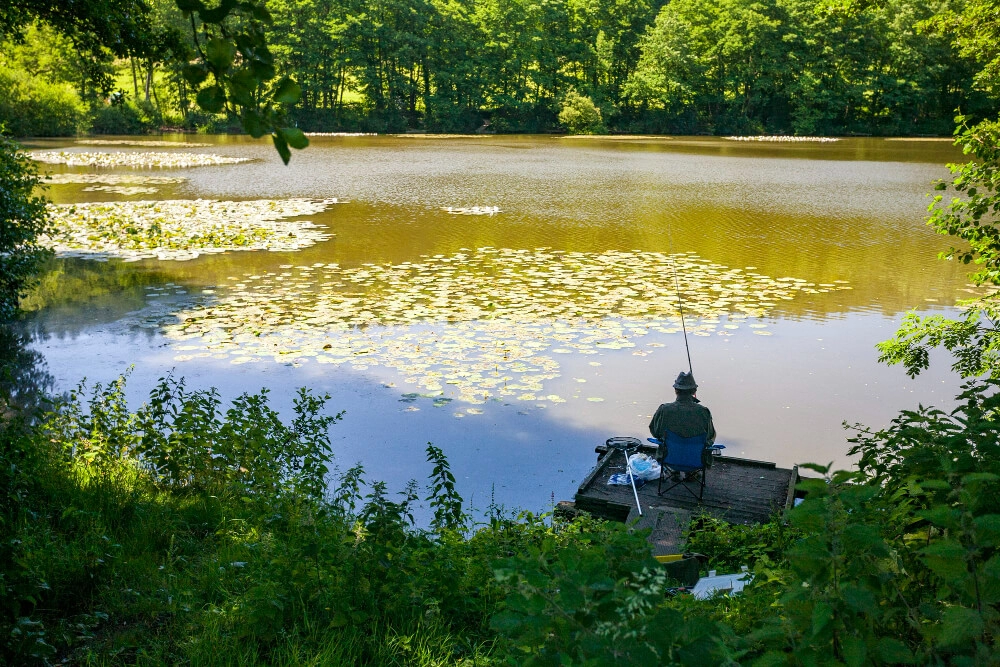By Super Admin - 15 February 2023
Tips to Gain Permission for Hunting and Fishing on Private Land
Learn how to gain permission for hunting and fishing on private land with our expert tips. Discover the best practices for approaching landowners and securing access.

As an avid hunter or fisherman, gaining permission to hunt or fish on private land can be an incredible opportunity. Private land is often less crowded and can offer better hunting and fishing experiences. However, obtaining permission to use private land for hunting and fishing can be a daunting task. In this article, we will provide tips to gain permission for hunting and fishing on private land.
Hunting and fishing on private land is a privilege, not a right. Property owners have the right to control access to their land, and it is important to respect their wishes. To gain permission, it is essential to follow proper etiquette and guidelines.

Here are some tips to gain permission for hunting and fishing on private land:
How to Get Permission to Hunt on Private Land
Hunting on private land can be an exciting and rewarding experience for many outdoor enthusiasts. However, gaining access to private land can be a challenging and intimidating process, especially if you are not familiar with the etiquette and procedures involved in obtaining permission. In this comprehensive guide, we will walk you through the steps you need to take to get permission to hunt on private land, while also providing valuable tips and advice to help make the process as smooth and hassle-free as possible.
1. Research the Area and Property Owners
Before approaching a property owner for permission to hunt or fish on their land, it is essential to do your research. Learn about the property, the types of game or fish available, and the hunting or fishing regulations in the area. Research the property owner and learn about their interests and preferences. This information can help you tailor your approach and increase your chances of obtaining permission.
2. Contact the Property Owner
Once you have researched the area and the property owner, it is time to make contact. Approach the property owner with respect and professionalism. Introduce yourself and express your interest in hunting or fishing on their land. Be sure to explain your experience and qualifications as a hunter or fisherman. Offer to provide references from other landowners or hunters who can vouch for your skills and professionalism.
3. Offer Something in Return
Offering something in return can help sweeten the deal and increase your chances of obtaining permission. You could offer to share your harvest with the property owner, offer to help with property maintenance, or offer to pay a fee for access. It is important to be clear about what you are offering and to follow through on your commitments.
4. Respect the Property Owner's Wishes
If the property owner denies your request, it is essential to respect their decision. Do not argue or pressure the property owner to change their mind. Remember, it is their property, and they have the right to control access. Respect their wishes, and if possible, ask if there are other ways you could gain access to the property in the future.
5. Follow Hunting and Fishing Regulations
If you are granted permission to hunt or fish on private land, it is essential to follow all hunting and fishing regulations in the area. Obtain the necessary permits and licenses, follow bag limits and season regulations, and respect the property owner's rules and regulations.
6. Leave No Trace
When hunting or fishing on private land, it is important to leave no trace. Clean up after yourself, respect the property owner's land, and do not damage property or wildlife. Leave the property in better condition than you found it.
7. Build Relationships
Building relationships with property owners can lead to long-term opportunities to hunt or fish on private land. After gaining permission, be sure to follow up with the property owner and thank them for the opportunity. Offer to share your harvest or provide updates on the condition of the property. Building a positive relationship can lead to future opportunities to hunt or fish on the property.

Conclusion
In conclusion, gaining permission to hunt or fish on private land requires respect, professionalism, and patience. By researching the area and property owner, contacting them with a respectful approach, offering something in return, following regulations, leaving no trace, and building relationships, you increase your chances of obtaining permission and creating a positive hunting and fishing experience. Remember that hunting and fishing on private land is a privilege, and it is essential to respect the property owner's wishes and rules. By following these tips, you can build long-term relationships with property owners and create memorable hunting and fishing experiences.
You might also like

10 Ways to Carry a Fixed Blade Knife
By Super Admin - 20 October 2023
Discover expert tips for safely and stylishly carrying a fixed-blade knife with our top 10 methods. Whether you're an outdoor enthusiast or a daily carrier, find the perfect way to keep your trusted tool by your side.

How to Sharpen a Hunting Knife: A Comprehensive Guide
By Super Admin - 9 October 2023
Learn the art of sharpening a hunting knife like a pro with our expert tips and comprehensive guide. Keep your blade in top-notch condition.

Best Throwing Knives for Survival in 2023
By Super Admin - 6 October 2023
Discover the top throwing knives for survival in 2023 - expert reviews and buying guide. Equip yourself for ultimate survival!

Best 308 Hunting Rifle under $1000
By Super Admin - 3 October 2023
Discover the best .308 hunting rifles under $1000 in our comprehensive guide. Find your ideal firearm for the hunt today!
